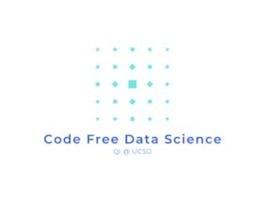Examines data mining perspectives and methods in a healthcare context. Introduces the theoretical foundations for major data mining methods and studies how to select and use the appropriate data mining method and the major advantages for each. Students are exposed to contemporary data mining software applications and basic programming skills. Focuses on solving real-world problems, which require data cleaning, data transformation, and data modeling.



Machine Learning in Healthcare: Fundamentals & Applications


Instructors: Sonya Makhni
Sponsored by Coursera for Reliance Family
Details to know

Add to your LinkedIn profile
23 assignments
See how employees at top companies are mastering in-demand skills


Earn a career certificate
Add this credential to your LinkedIn profile, resume, or CV
Share it on social media and in your performance review

There are 4 modules in this course
In this module, we’ll start demystifying the terminology. We’ll begin by exploring the differences between AI, machine learning and deep learning. You’ll also gain hands-on experience in planning your own AI algorithm development, and learn what goes into preparing and constructing datasets for research questions.
What's included
8 videos7 readings5 assignments1 peer review2 discussion prompts
In this module, we’ll take a deep dive into several sophisticated AI modeling techniques, including random forest modeling, gradient boosting, clustering and neural networks.
What's included
6 videos8 readings7 assignments2 discussion prompts
In this module, you’ll dive deeper into the nitty gritty of how AI algorithms are trained and validated, and examine how they compare to clinicians in the field.
What's included
6 videos5 readings7 assignments2 discussion prompts
In this module, we’ll explore why so many potentially useful algorithms are not being implemented by healthcare providers. That critique will explore the black box dilemma, and the challenges involved in developing accurate and equitable data sets. That means examining the many ways in which algorithms can discriminate against various marginalized segments of the population.
What's included
7 videos6 readings4 assignments2 discussion prompts
Offered by
Why people choose Coursera for their career




Recommended if you're interested in Health

University of Colorado Boulder

University of California San Diego

Johns Hopkins University

Johns Hopkins University

Open new doors with Coursera Plus
Unlimited access to 10,000+ world-class courses, hands-on projects, and job-ready certificate programs - all included in your subscription
Advance your career with an online degree
Earn a degree from world-class universities - 100% online
Join over 3,400 global companies that choose Coursera for Business
Upskill your employees to excel in the digital economy


